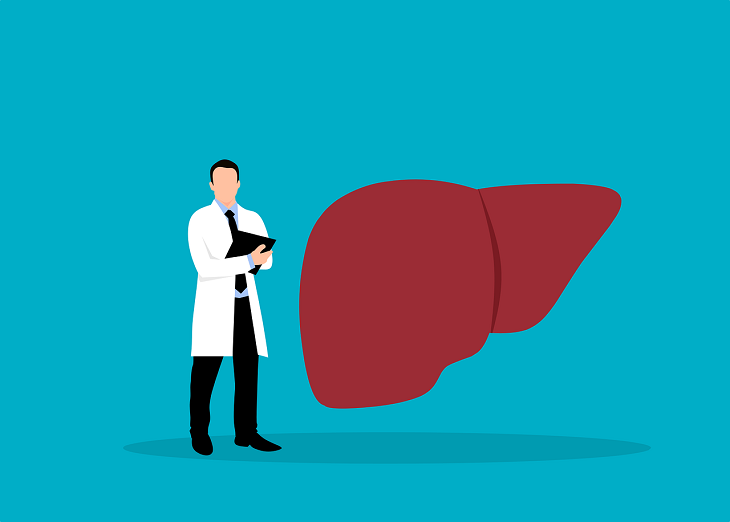THE DAILY DOSE
How Stress Can Influence Liver Function

The liver is one of the most important organs because of the variety of life-maintaining functions it performs. Essentially, the liver acts as a sort of detox program built right into the body, processing the blood that leaves the stomach and intestines so it can create nutrients the body needs to survive. This process also ensures that any medications can be effectively metabolized so that the body can use them without harm.
Since the liver plays such a vital role in filtration, digestion, metabolism, and detoxification, its proper function is essential to our overall health. A healthy liver ensures your body gets everything it needs (and that everything it doesn’t is removed), but when it isn’t working as it should, some serious health issues can occur.
Diseases such as hepatitis B and C and excessive use of alcohol can both lead to liver damage or failure. But does stress have the same effect? Read on to learn how stress can influence liver function and what you can do about it.
Can emotional stress affect the liver?
Emotional stress can take a toll on your mental wellbeing and cause a host of mental health disorders such as anxiety or depression, but it can also cause issues with your physical health. When the body feels high levels of emotional stress, it releases a hormone known as cortisol. While cortisol can be beneficial in terms of preparing to respond to danger or increasing metabolism to help process glucose, there is such a thing as having too much cortisol.
According to the American Psychological Association, when levels of cortisol are too high (especially on a regular basis), many of the body’s systems can be negatively affected. For example, the muscles naturally tense up in an effort to be on guard when cortisol levels are high. However, when there is no actual threat of danger, that prolonged tension can lead to the development of disorders tied to muscle tension, such as migraines and chronic pain.

Every other system in the body can be negatively affected by too much emotional stress, including the cardiovascular system, the respiratory system, and the digestive system (which includes the liver). Research has found that when someone is constantly experiencing high levels of emotional stress, it can lead to issues with the blood flow in the liver. When that happens, the liver cannot get enough oxygen stores and its blood vessels can narrow, ultimately leading to liver damage.
If your stress levels begin to affect your liver, you may start to experience symptoms such as:
- Changes to the color of your skin
- Chronic digestive issues
- Aches and pains
- Dark-colored urine
- Mood swings
- Low energy
- Pain in the chest or abdomen
Does stress contribute to fatty liver?
For people who already have an issue with how their liver functions, high levels of stress can make the issue worse. This is especially true in the case of fatty liver disease – a condition that develops when a person has an excess level of fat within the liver.
Over time, high levels of fat in the liver cause damage, which comes with a host of health problems such as:
- Fatigue
- Unintentional weight loss
- Jaundice (a yellowing of the skin or eyes)
- Spiderlike blood vessels on the skin
- Itching that doesn’t go away
If the condition worsens, it can lead to cirrhosis, a disease that can develop into liver failure and even lead to the need for a liver transplant. Various studies have examined how the liver is affected by stress in relation to fatty liver disease. One particular study looked at the livers of healthy adults to see how high levels of stress may influence the development of the disease. The results showed that fatty liver disease was correlated most often with people who had higher levels of stress – indicating that stress itself can bring on fatty liver disease for people who may already be at risk of developing the condition.
Another research paper looked at people who had already been diagnosed with fatty liver disease and how stress affected the health of their liver following onset. The study found that stress, especially prolonged and chronic stress, was a main factor in the worsening of the disease because of the way it can lead to an increase in both cholesterol and triglycerides in the liver.

Can stress and anxiety cause elevated liver enzymes?
Various substances assist the liver in performing its job. One substance that is vital for liver function is liver enzymes – proteins that help the processing of blood from the stomach and intestines. Liver enzymes are designed to speed up those chemical reactions for the best possible result.
Research has shown that people who experience high levels of emotional stress and anxiety often have elevated levels of liver enzymes. High levels are associated with inflammation and liver damage.
The effect stress has on the liver is an entirely negative one, especially in instances where the stress is chronic. Since your liver is vital to your overall health, the best thing you can do to keep it healthy is eat right, take care of yourself, and do your best to reduce stress wherever possible.
Featured image by Francisco Moreno on Unsplash